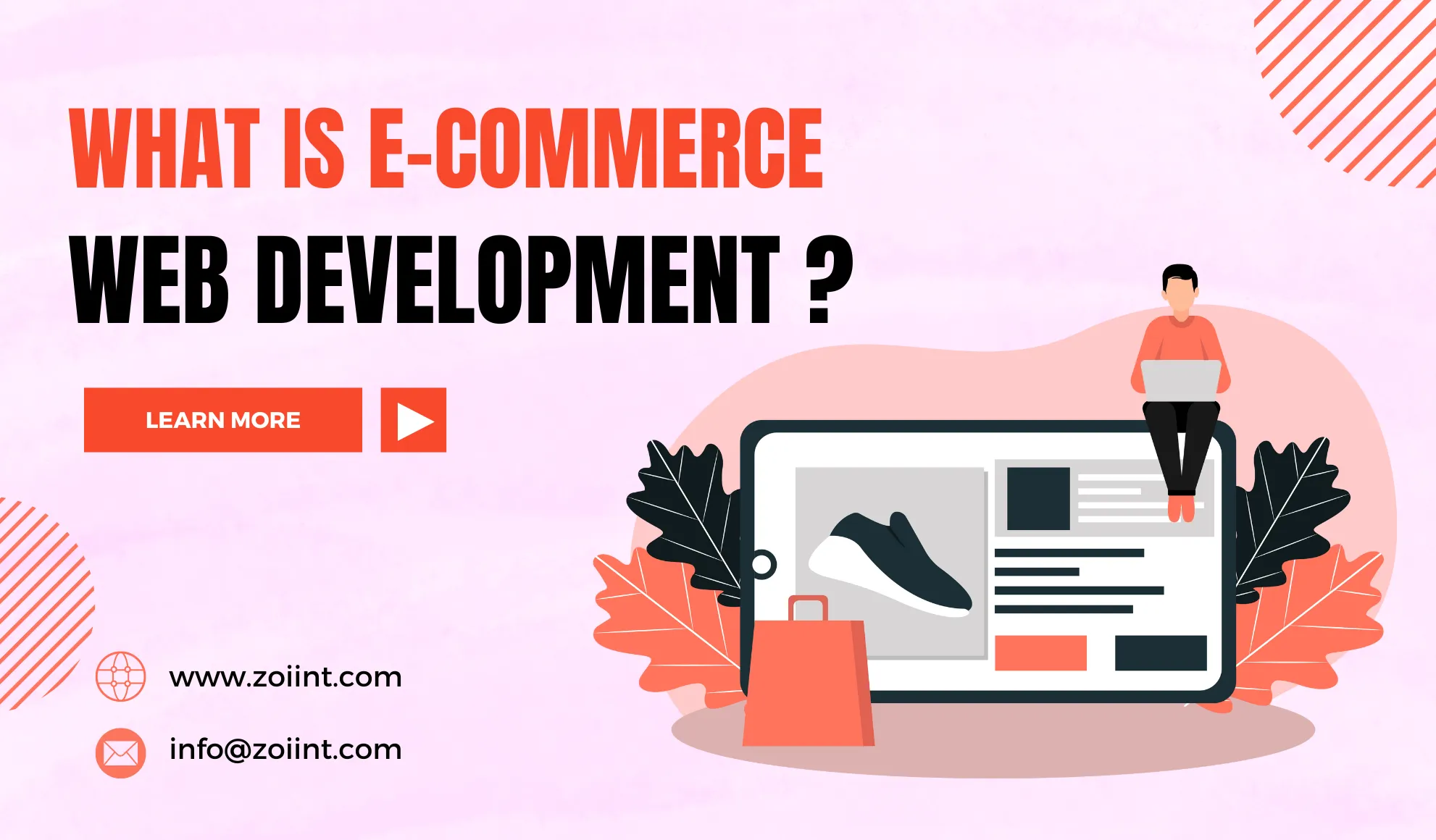Ecommerce web development is the process of creating an ecommerce site. Ecommerce site frontend and backend development includes checkout systems, payment processing, site security, and other features.
In today’s digital age, the online marketplace is booming, and businesses of all sizes are increasingly turning to ecommerce to reach a global audience. But what exactly does it take to create a successful ecommerce platform? This is where ecommerce web development comes into play. Continue reading to learn more about what ecommerce web development means!
What is Ecommerce Web Development?
Ecommerce web development is the process of creating, developing, and maintaining an online platform through which businesses can offer their products or services. It involves designing a functioning, visually appealing, and user-friendly website where customers can explore products, make purchases, and handle orders. Ecommerce platforms, unlike traditional websites, require additional functionality such as payment gateways, inventory management systems, and secure checkout processes.
Why is Ecommerce Web Development Important?
Ecommerce web development is crucial for businesses looking to capitalize on the online shopping trend. Here’s why it’s important:
- Global Reach: With an eCommerce website, businesses may instantly reach a larger audience beyond geographical limits. This increases revenue and opens up a world of options for expansion and growth, allowing organizations to enter previously untapped areas and client segments.
- Increased sales: Businesses that invest in eCommerce website development can reach more clients while remaining available 24 hours a day. This allows them to increase sales because clients are not limited by time, as opposed to physical stores, which are only open for a set period of time.
- Personalized Shopping Experience: Personalization has become a fundamental desire among modern consumers. Businesses that construct eCommerce websites benefit from built-in and integrated analytics tools that provide greater insights into their consumers’ preferences, browsing behavior, and purchase history. They can use these information to personalize each customer’s purchasing experience based on their preferences and previous interactions with the website. This individualized strategy helps firms improve client happiness and loyalty.
- Improved Customer Service: One of the most essential advantages for having an eCommerce website is that it enables businesses to provide much better service and support than a physical store. Businesses can improve how they handle consumer inquiries by including live chat assistance, an AI-enabled chatbot, a FAQ section, email alternatives, and other features. This allows them to provide a far better experience for their customers. Customers can shop whenever it is convenient for them, and businesses can provide a wealth of information and assistance with their products through a website.
- Flexibility to Run Business from Anywhere: With a physical store, businesses are only able to conduct business from within the store. However, with an eCommerce website, they may run their business from anywhere in the world. They don’t have to worry about having a receptionist, a cashier, a security guard, and a salesman to run the store; all they need is a laptop and an internet connection to manage the entire business and the website.
- Cost-Effective: Setting up and running an eCommerce store is often less expensive than starting a physical store. There is no need to worry about physical site fees like rent, utilities, or staffing. Furthermore, eCommerce website building platforms frequently provide cost-effective solutions for inventory management, order processing, and payment processing, hence lowering operational costs.
Steps for Ecommerce Web Development Process
Building an ecommerce website involves several steps, each crucial for creating a successful platform:
- Start with a Plan:
Define your business objectives, identify your target audience, and outline the essential features your eCommerce site will need. Research competitors to understand the market landscape. - Choose a Platform and Domain:
Select a suitable eCommerce platform (such as Shopify, WooCommerce, or Magento) based on your needs. Secure a domain name that reflects your brand and is easy to remember. - Create the Layout:
Design the website’s structure by creating wireframes and mockups. Focus on delivering an intuitive and user-friendly interface that provides a seamless shopping experience. - Code Your Website:
Develop the website using appropriate technologies (HTML, CSS, JavaScript, and a backend language like PHP or Python). Implement eCommerce features such as product listings, shopping carts, and payment gateways. - Optimize Your Design:
Ensure your design is responsive, fast-loading, and SEO-friendly. Optimize content, images, and meta tags to improve search engine visibility and user experience. - Get Ready to Launch:
Conduct comprehensive testing to identify and fix any issues. Test for functionality, usability, security, and performance. Once everything is in place, launch the website on your chosen domain. - Maintenance and Optimization:
After launch, regularly update your website with fresh content, security patches, and new features. Continuously analyze performance and user feedback to make ongoing improvements.
Also Read: What is SEO and Why SEO is Important for Websites?
Make Ecommerce Web Development Easy with Zoi International
Navigating the complexities of ecommerce web development can be challenging, but you don’t have to do it alone. At Zoi International, we specialize in creating bespoke ecommerce solutions tailored to your business needs. From planning to launch and beyond, our team of experts is here to ensure your ecommerce platform is not only functional but also a success. In addition to web development, we offer a full suite of services including graphic design, SEO, digital marketing, and IT and computer support. Let us help you build an online store that stands out in the crowded digital marketplace.
To get started with your custom website or Shopify digital marketing strategy, request your free consultation today.
FAQs/People Also Ask
What are ecommerce websites?
Ecommerce websites are online platforms that allow businesses to sell products or services directly to customers. These sites include features like product catalogs, shopping carts, payment gateways, and order tracking. Click here to read more in brief about ecommerce.
What are the types of ecommerce websites?
There are several types of ecommerce websites, including:
- B2C (Business-to-Consumer): The most common type, where businesses sell directly to consumers.
- B2B (Business-to-Business): Platforms where businesses sell products or services to other businesses.
- C2C (Consumer-to-Consumer): Websites like eBay where consumers sell products to other consumers.
- C2B (Consumer-to-Business): Platforms where consumers offer products or services to businesses, like freelance marketplaces.
What does an ecommerce web developer do?
An ecommerce web developer is responsible for creating and maintaining an online store. This includes coding the site, integrating necessary features, ensuring security, optimizing for performance, and regularly updating the platform.






